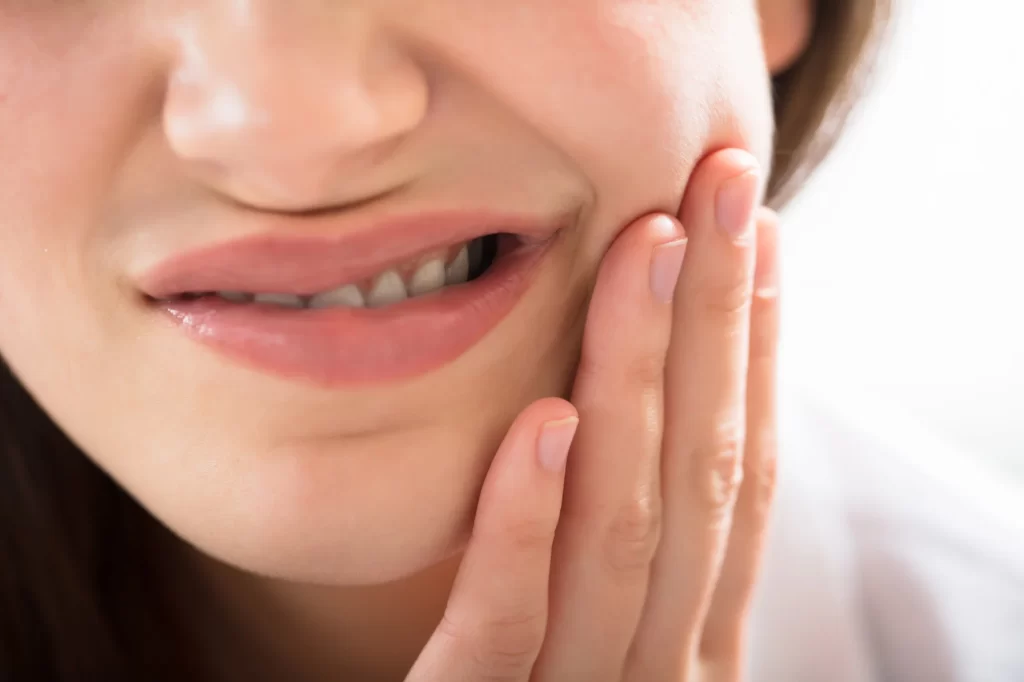
Oral diseases affect nearly 3.5 billion people worldwide. Staying on top of your oral health is crucial if you want to maintain your smile.
When bacteria builds up in your mouth, it leads to the formation of plaque. The bacteria and plaque then produce acids that can erode the enamel of your teeth, which in turn can lead to cavities forming. Cavities can destroy your teeth if left untreated, and if there are complications, it can even become life-threatening.
So, keep reading to find out how to tell if you have a cavity.
Extreme Sensitivity
One of the signs of a cavity is unnatural sensitivity. Sensitivities to hot or cold food are one of the earlier signs that you can pick up on.
When the plaque and bacteria start to wear down the enamel of your tooth, it can affect the dentin layer below the enamel. The dentin layer contains microscopic hollow tubes that exist to support the structure of your tooth enamel. Dentin helps absorb pressure from eating and is also responsible for transferring impulses from your enamel to your nerves.
When the enamel layer gets too damaged, and the dentin is exposed, the impulses that are sent to your nerves aren’t buffered by the enamel. This means you experience hot or cold foods as sharp bursts of pain.
Sensitivity to sweets is another way your teeth tell you that there is something wrong. Like hot and cold foods, sugary foods leave a lingering discomfort in your mouth.
Sensitivity doesn’t always mean that you have a cavity. But if the sensitivity persists, you should go see a dentist as soon as possible to rule out any trauma. Your dentist will also be able to help you manage the sensitivity if it isn’t due to a cavity.
Inflammation and Pain
One of the most common signs that you need to go see a dentist is if you have a toothache. The pain can range from occasional twinges of pain all the way to debilitating pain that doesn’t go away. Everybody experiences toothaches differently, and the position and severity of the issue can also change how you feel the pain.
Toothaches, due to cavities, can be quite fickle. It might just pop up when you eat certain foods, or the pain can flare up when you bite down. This is because toothaches are caused by inflammation around the affected tooth.
As the dentin in your teeth gets exposed, your teeth become weaker and more sensitive to external factors. Since the enamel doesn’t protect the dentin or your nerves, you’ll start to feel the inflammation as pain.
If the inflammation becomes too severe, it can lead to an infection.
You can also save an infected tooth from extraction by getting a root canal. A root canal treatment removes all the bacteria from your root canals while also ensuring the canals can’t get infected again. During this process, the inflamed pulp is removed from your root canals, as the pulp is what leads to infections.
This procedure can save your teeth from extraction but is usually used as a last resort. A root canal has lifelong results as long as you continue to take care of your dental health and hygiene.
Changes in Color
Cavities are a sign of tooth decay, but they can be reversed by getting a cavity filled. If the decay keeps progressing and getting worse, it will start to show on your teeth.
Discoloration or dark spots on your teeth are a sign that the decay is getting worse. You need to take care to thoroughly inspect your teeth. The discoloration isn’t always obvious and might simply appear as off-white spots.
Take note of any teeth that are a different shade than the rest of your teeth. If the discoloration gets worse, it’s best to make an appointment with your dentist as soon as possible. It’s still possible to save a tooth if it’s discolored, but if the decay gets too bad, the tooth might need to be pulled.
A Hole or Pit
As the cavity starts to form, you might start to notice a hole or pit when you run your tongue over the surface of your teeth. Unfortunately, most cavities form between your teeth or in crevices, so you won’t be able to feel them, but sometimes they appear on top of your molars or at the back of your teeth.
Any lumps or bumps that aren’t normally on your teeth are a cause for concern.
Bad Breath
Since cavities are caused by bacteria, it makes sense that the bacteria might make your breath smell bad. If you notice your breath starts to smell bad and doesn’t go away no matter what you do, it’s likely that it’s caused by a cavity.
If your bad breath is paired with a persistent foul taste in your mouth, then you should make an appointment with your dentist as soon as possible. A good rule of thumb, if you struggle with your teeth, is to go for routine check-ups or whitenings and have them take a quick look at the health of your teeth so that anything can be caught early on.
How to Tell if You Have a Cavity
When it comes to your oral health, it’s important that you know how to tell if you have a cavity. If you can spot signs of a cavity early on, you’ll be able to avoid a lot of pain and also get the cavity filled instead of losing the tooth. Getting a cavity filled is something you can have done at your local Katy, TX dentist in a single appointment.
If you’re looking for a new dentist, contact us today. Katy Gentle Dentists cares about the total health of our patients, not just their teeth.

